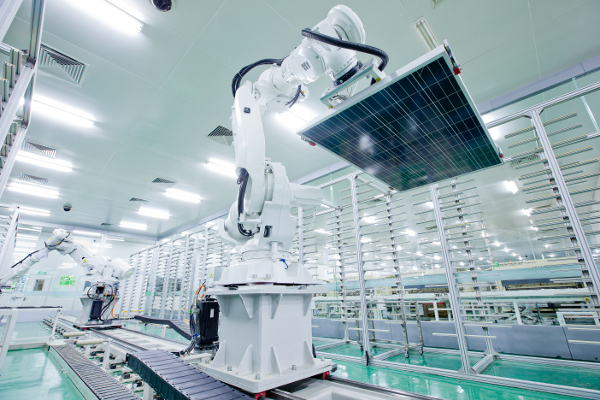Several weeks ago, the Chinese PV group said that it had reached a conversion efficiency of 22.04% with its P-type multicrystalline silicon solar cells. And its latest announcement comes mere days after rival PV module supplier Longi Solar revealed that it had achieved a 22.71% conversion efficiency record with its mono-PERC cells, as certified by Germany’s Fraunhofer ISE CalLab.
Kangping Chen, the chief executive of JinkoSolar, said that the company remains committed to R&D. It scored its latest P-type PERC advancements by utilizing a number of advanced methods, including P-type silicon wafer and bulk passivation technologies, selective emitter technologies and fine-finger metallization technologies.
“Among the various techniques utilized, the application of the selective emitter structure and fine-finger metallization significantly minimized the energy losses caused by recombination,” the company said in an online statement. “The open circuit voltage and conversion efficiency of the solar cell was also greatly improved as a result. The utilization of advanced multi-layer ARC technology, an innovation developed by JinkoSolar, made further contributions to the efficiency increase.”
The Shanghai-based group recorded a net profit of about $7 million in the second quarter of 2017, as revenue hit $1.17 billion. It shipped roughly 2.9 GW of solar panels in the April-June period, up 68.1% year on year. A recent report by China’s National Energy Administration (NEA) showed that the company is now competing with Longi Solar for the title of China’s leading PV module supplier this year, based on shipment data from the first half.
This content is protected by copyright and may not be reused. If you want to cooperate with us and would like to reuse some of our content, please contact: editors@pv-magazine.com.



1 comment
By submitting this form you agree to pv magazine using your data for the purposes of publishing your comment.
Your personal data will only be disclosed or otherwise transmitted to third parties for the purposes of spam filtering or if this is necessary for technical maintenance of the website. Any other transfer to third parties will not take place unless this is justified on the basis of applicable data protection regulations or if pv magazine is legally obliged to do so.
You may revoke this consent at any time with effect for the future, in which case your personal data will be deleted immediately. Otherwise, your data will be deleted if pv magazine has processed your request or the purpose of data storage is fulfilled.
Further information on data privacy can be found in our Data Protection Policy.